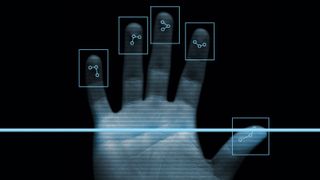Japan wants to start using fingerprints as currency
From Yen to ten

The 2020 Tokyo Olympic and Paralympic Games are on the distant horizon, and the Japanese authorities want to make the process of getting into the country and buying stuff as easy as possible for visitors - by using their fingerprints as ID.
As Japan News reports, the government is going to run a trial this summer where a press of two of your fingertips will be enough to get through security barriers, pick up a coffee and much more besides. Fingerprints and other data (like credit cards) will be registered at airports and other locations.
For example, some Japanese hotels ask you to show your passport when checking in - this is one procedure where a fingerprint could be used instead. Eventually, it could speed up entry into Olympic venues and other similar events.
Wish you were here
The move is designed to boost the number of tourists Japan attracts by preventing crime and reducing the need to carry cash and credit cards. The government wants 40 million foreigners a year wandering around buying souvenirs, speaking bad Japanese and snapping photos by 2020.
300 shops, hotels, restaurants and other venues are part of the initial roll-out - all in popular tourist hot-spots - and the scheme is due to expand further next spring as preparation for the Olympics ramps up.
One potential issue is concerns about privacy: the government plans to use the data to map tourist movements and spending habits to help it manage the large influx of people, though it's promising to anonymise the data first. If you're heading to Tokyo this summer, remember to take your fingers with you.
- Researchers fool phone fingerprint tech with an inkjet printer
- Here are our picks of the best Japan VPNs
Watch us get our fingerprints all over the Huawei P9:
Get daily insight, inspiration and deals in your inbox
Get the hottest deals available in your inbox plus news, reviews, opinion, analysis and more from the TechRadar team.

Dave is a freelance tech journalist who has been writing about gadgets, apps and the web for more than two decades. Based out of Stockport, England, on TechRadar you'll find him covering news, features and reviews, particularly for phones, tablets and wearables. Working to ensure our breaking news coverage is the best in the business over weekends, David also has bylines at Gizmodo, T3, PopSci and a few other places besides, as well as being many years editing the likes of PC Explorer and The Hardware Handbook.
Most Popular


